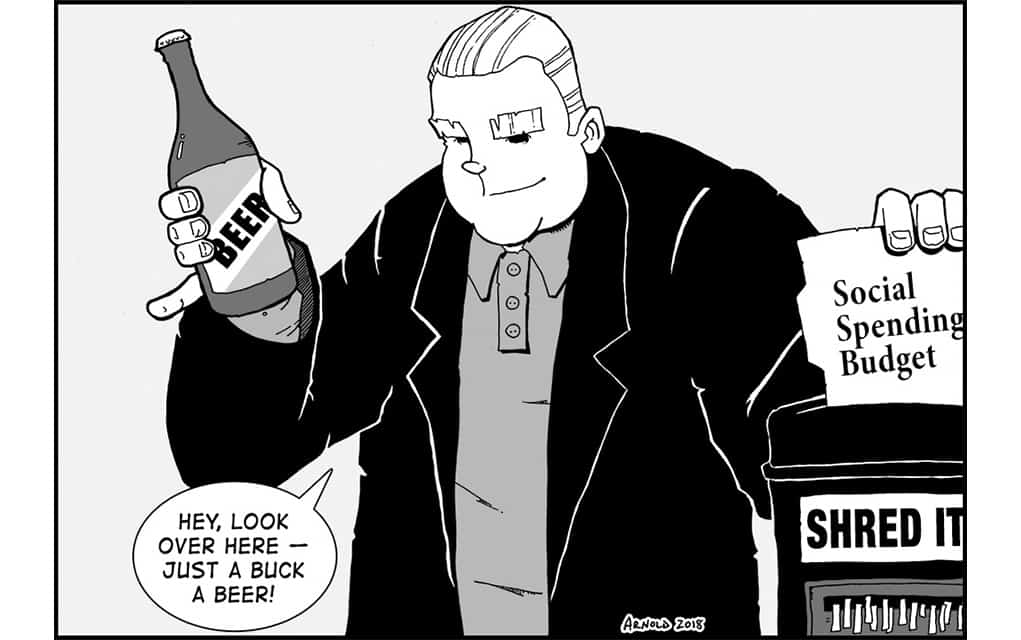;
;
;
Next Article
The View From Here – Aug 9th, 2018

Populist – in the appeal-to-Joe-Sixpack sense – and likely popular, the buck-a-beer pledge by Doug Ford is now official policy. It’s another example of the premier moving quickly on campaign talking points. The minimum price floor for beer will be lowered to $1 as of August 27, at least on beer with
Last updated on May 03, 23
Posted on Aug 09, 18
4 min read
